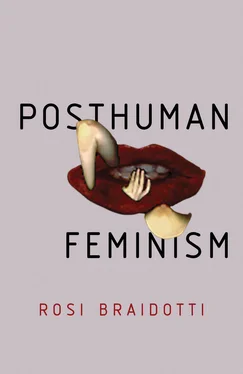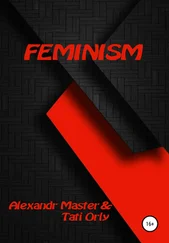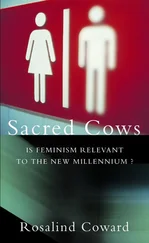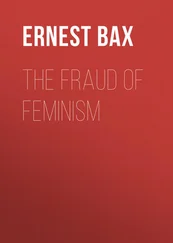In this book I unravel the deep imbrications between the two ‘isms’ that are so dear to my heart: feminism and posthumanism. The claim of this book is that mainstream posthuman scholarship has neglected feminist theory, while in fact feminist theory is one of the precursors of the posthuman turn. Posthuman Feminism aims to fill that missing link and argues that they are two sides of the same coin. This intellectual endeavour is urgent because we live in times of what I have called the posthuman convergence in the two predecessors to this book, The Posthuman (Braidotti, 2013) and Posthuman Knowledge (Braidotti, 2019). The present book builds on and expands from the two previous volumes, exploring the consequences for feminism of thinking through and with posthuman theory. In keeping with my approach, I refer to the posthuman as both a marker of present conditions and as a navigational tool. In both cases the term aims to assist in reaching a more adequate understanding of the challenges confronting us in today’s world and in steering a course across them. More specifically, I want to detect and assess emergent trends in contemporary feminist theory and practice.
Feminism is by now an established social movement, greatly diversified across multiple constituencies and locations. It is therefore not easy to give a comprehensive definition, other than pointing to a broad range of feminist positions. The spectrum includes the quest for equality between men and women, the recognition of multiple genders, the abolition of gender identities altogether, the intersectional connections across gender, race and class, and more. Feminism is the struggle to empower those who live along multiple axes of inequality. It involves empowering the dispossessed and impoverished, not only women, but also LGBTQ+ people, people of colour, Black and Indigenous peoples. In that sense, feminism is not just an egalitarian movement for the mainstream, but also a transformative decolonial and radical struggle to affirm positively the differences among marginalized people(s). These differences of material location express different life experiences and also multiple ways of knowing. The radical spark of the feminist project for me lies in its subversive politics. It means creating the alternative visions of ‘the human’ generated by people who were historically excluded from, or only partially included into, that category. It means creating other possible worlds. This transformative edge assumes that no emancipatory process, however partial, is ever completely subsumed or incorporated into the dominant socio-economic life conditions, to which it is attached by critical opposition. Margins of intervention remain available, albeit as virtual potential. The trick is how to activate them.
By posthuman convergence I mean to indicate the present historical condition of the Anthropocene – not a utopian future – that is marked by three momentous and interconnecting changes. First, at the social level we witness increasing structural injustices through the unequal distribution of wealth, prosperity and access to technology. Second, at the environmental level we are confronted with the devastation of species and a decaying planet, struck by climate crisis and new epidemics. And third, at the technological level, the status and condition of the human is being redefined by the life sciences and genomics, neural sciences and robotics, nanotechnologies, the new information technologies and the digital interconnections they afford us.
The COVID-19 pandemic that is raging as I am writing is emblematic of the posthuman convergence. It is a human-made disaster aggravated by undue interference in the ecological balance and the lives of multiple species. The pandemic foregrounds the importance of human/non-human interaction and its destructive, as well as generative, potential. Paradoxically, the contagion has resulted in an increased use of technology and digital mediation, as well as enhanced hopes for vaccines and bio-medical solutions. It has thus intensified the humans’ reliance on the very high-tech economy of cognitive capitalism that caused the problems in the first place.
Living with these internally contradictory developments is part of our historical deal. Thinking adequately about them is an urgent task for feminist thought, all the more so because the posthuman turn is marked by fundamental disruptions of received understandings of what it means to be human. The blatant inequalities exposed by the COVID-19 pandemic such as the disproportionate loss of lives among women, LGBTQ+ and ethnic minorities and socially underprivileged people, brings home a reality that feminist, postcolonial and race thinkers had already voiced: that the ‘human’ is neither universal nor neutral but shot through with power relations organizing access to privileges and entitlements (Hammonds, 2020).
Advanced capitalism is at the core of the disruptions that characterize the posthuman convergence, its advanced technologies barely concealing the brutality of the social injustices it enforces. The combined pressures of these power mechanisms are simultaneously uniting humanity in the threat of extinction and dividing it by controlling access to the resources needed to meet the challenge. The economically dispossessed and impoverished are missing out on the advantages and profits of advanced capitalism and are in fact the most exposed to the lethal effects of ecological depletion and global pandemics. The posthuman convergence thus makes for polarized socio-economic divergences, as well as manic-depressive swings of moods and emotions. Excitement and exhilaration in view of the advanced technologies and automation that drive the ‘Fourth Industrial Age’ (Schwab, 2015), alternate with exasperation and fear at the thought of the damages inflicted by the ‘Sixth Extinction’, the potential mass extinction of both human and non-human inhabitants of this planet (Kolbert, 2014). The affective economy of the posthuman convergence is characterized by suffering interchanging with hope, fear unfolding into resilience, and anxiety flipping into action.
A pandemic on the scale of COVID-19 brings home to the Western world an ancient truth, carried by Indigenous philosophies and cosmologies: that ‘we’ are all in this planetary condition together whether we are humans or others. It is high time for this heterogeneous and collective ‘we’ to move beyond the Eurocentric as well as humanistic habits that have formatted it, and to dislodge the philosophical anthropocentrism they entail and enforce.
This shift of perspective underscores the need for posthuman feminist theory. In this book I will address questions such as: how do emancipatory political movements position themselves within the posthuman convergence? How do these already complex intersections between advanced technology and accelerating environmental crisis affect the feminist agenda for intersectional social justice, transnational environmental justice, and women’s and LGBTQ+ people’s rights?
In a concomitance of events that marks the extraordinary period we are going through, the voices, experiences and perspectives of multiple others are bursting all around us. The power of viral formations has become manifest in the pandemic, stressing the agency of non-human forces and the overall importance of Gaia as a living, symbiotic planet (Lovelock and Margulis, 1974). At the same time a global revolt against endemic – and indeed viral – racism took off in the fateful year 2020, led by the ‘Black Lives Matter’ movement. The feminist mass mobilization epitomized by the #NiUnaMenos and #MeToo movements continues to fight globally. As these multiple crises unfold, the politics of sexualized, racialized, naturalized minorities – the ‘others’ – are moving centre stage, pushing dominant ‘man’ (or Anthropos) off-centre.
Читать дальше












